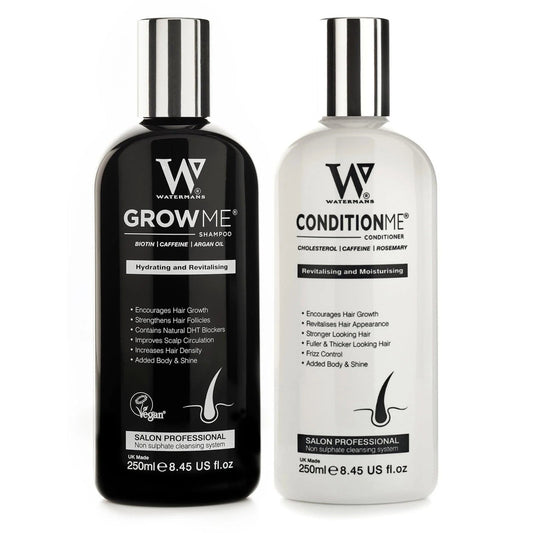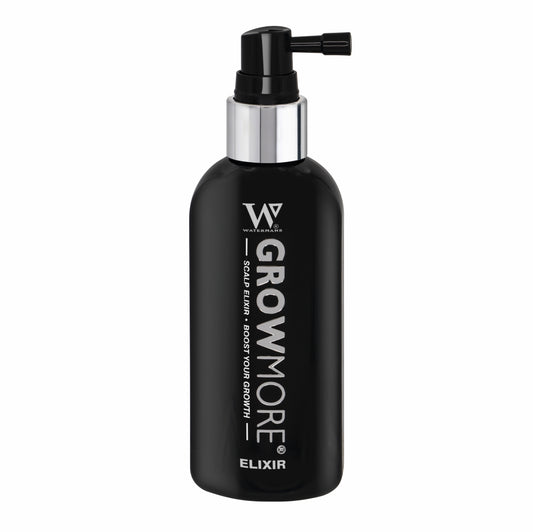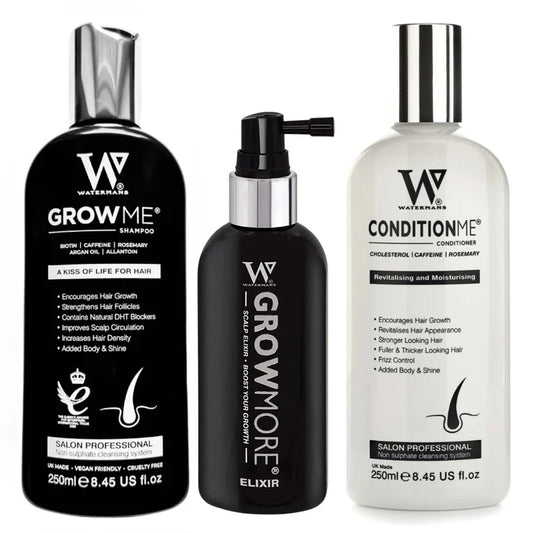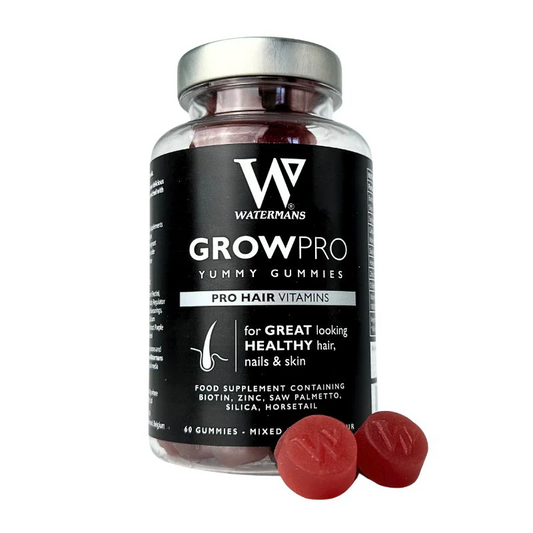Unlocking the Mystery: What Causes Menopause Hair Loss and How to Combat It Naturally
Share

Menopause is a natural change. It marks the end of a woman’s periods. It brings a drop in hormones like estrogen and progesterone. Most women know of hot flashes and mood swings. Some also face hair loss linked to menopause. As age grows, hair may thin or fall out more. This can cause worry and stress.
In this article, we show the reasons behind menopause hair loss, its effects, and some natural ways to face it. When you see how menopause changes hair, you can work to care for it and gain back your self-assurance.
What Causes Menopause Hair Loss?
Hormonal Changes
Menopause brings shifting hormones. Lower levels of estrogen and progesterone slow hair growth. Hair then grows less and falls out more.
Dihydrotestosterone (DHT)
A hormone called DHT also affects hair. DHT comes from testosterone. It makes hair follicles smaller. This makes hair strands finer or even stops growth.
Aging
Aging makes hair loss more common. When we grow older, our hair cycle slows. Hair follicles work less. This leads to shorter growth periods and longer rests. Over time, hair thins.
Stress and Emotional Factors
Menopause brings many changes in body and mood. Stress can push many hairs into rest. This leads to more shedding and thinner hair.
Nutrition and Lifestyle Factors
Your food and habits shape hair health. Lacking nutrients like iron, protein, omega-3 fatty acids, or vitamins such as Biotin can cause hair loss. Smoking, too much alcohol, or little exercise can hurt hair health.
How To Combat Menopause Hair Loss Naturally
Knowing why hair loss happens is the first step. Here are some natural ways to help hair:
1. Using a Nourishing Shampoo
Try a shampoo that helps your hair grow. Watermans Grow Me Shampoo is made to care for hair loss. It has Biotin, Rosemary, Caffeine, Niacinamide, Argan Oil, Allantoin, and Lupin Protein. This mix works from the roots and adds body to your hair. It is a natural, non-medical care choice.
Discover Watermans Grow Me Shampoo here!
2. Diet and Nutrition
Eat well for hair health. Include:
- Protein: Hair builds on protein. Get lean meats, fish, eggs, and beans.
- Omega-3 Fatty Acids: Fish, flaxseeds, and walnuts supply good fats.
- Vitamins A, C, D, and E: Find these in greens, fruits, nuts, and seeds.
3. Scalp Massages
Massage your scalp often. This move brings blood to hair roots and helps growth. Use oils, like coconut or olive, to give extra care.
4. Stress Management Techniques
Cutting stress can boost overall health and hair. Try these ways:
• Meditation
• Yoga
• Deep breathing
• Spending moments outside
5. Hydration
Drink plenty of water. Good hydration keeps the hair moist and strong.
6. Avoiding Harsh Treatments
Keep away from harsh treatments. Chemical relaxers, too much heat, or tight styles can harm hair.
7. Herbal Remedies
Herbs such as saw palmetto, ginseng, and nettle may help hair. Check shampoos or supplements made with these herbs.
Did You Know?
- Hair Growth Cycle: Each hair goes through three steps. It grows, shifts, and rests. Menopause can slow or change this cycle.
- Average Hair Loss: Losing 50-100 hairs a day is normal. Menopause may raise this number.
- Genetics: If women in your family lose hair during menopause, you might too.
- Thyroid: Thyroid problems can also cause hair loss. Check your thyroid if you see more hair fall.
- Menopause Age: Most women start menopause around 51. Some have signs as early as their late 40s.
Frequently Asked Questions (FAQs)
Q1: Can hair loss during menopause be reversed?
A: Some loss may stay. But many women see improvement by fixing hormone balance or changing hair care.
Q2: How long does menopause hair loss last?
A: Hair loss can occur anytime during menopause. It may last some years after menopause. Many women return to normal hair growth later.
Q3: Is it normal to notice more hair in my brush during menopause?
A: Yes, it is normal. Menopause changes hormone levels. This change can lead to more hair on your brush or pillow.
Q4: What is the best way to nourish hair during menopause?
A: A mix of a good diet, hydrating products, and natural care like scalp massages can help hair.
Q5: Are there any supplements I should consider?
A: Supplements with Biotin, Vitamin D, and Omega-3 fatty acids may help. Check with your doctor before you try a new supplement.
Q6: How can I stop hair thinning?
A: Stick with a healthy diet, choose caring hair products like Watermans Grow Me Shampoo, lower stress, and care for any medical issues to help slow hair thinning.
Q7: Is there scientific support for natural remedies for hair loss?
A: Some natural ways show help. Always work with your doctor to find what suits you best.
Q8: How can I tell if my hair loss is linked to menopause?
A: If you also have hot flashes, mood shifts, or changes in your periods, the hair loss might link to menopause.
Q9: When should I talk to a doctor about hair loss?
A: If hair loss happens fast or in patches, or comes with other worrisome signs, speak with your doctor.
Q10: Are there styles that make thin hair look thicker?
A: Yes. Choose cuts with layers that add volume. Avoid heavy products that weigh hair down.
By knowing what happens during menopause and taking simple steps, you can face hair loss with care. Even during big changes, you can care for your hair and feel good about yourself.



